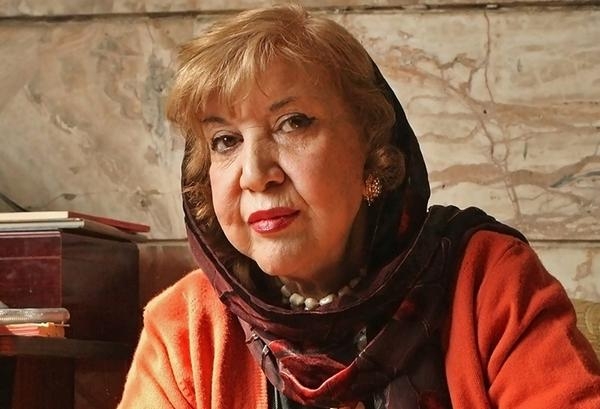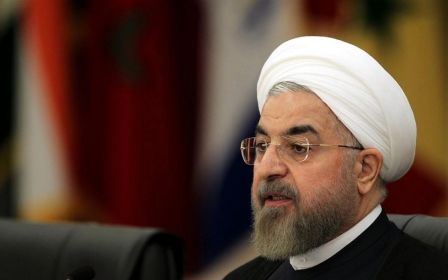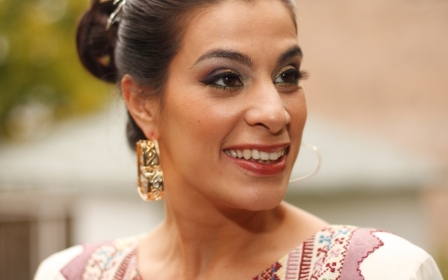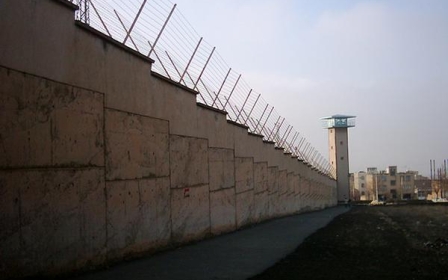'It is the voice that shall remain': Iran's prized poet dies at 87

Simin Behbehani, a much-loved poet known as the Lioness of Iran, died on Tuesday after falling into a coma on 6 August.
Twice nominated for the Nobel Prize in literature and an active figure in Iranian cultural life for decades, Behbehani was known for speaking out passionately about women’s rights and politics in her native country.
Born Simin Khalili in the capital Tehran in 1927 to a poet father and a French teacher and women’s activist mother, she took her first’s husband’s name after their marriage, retaining it even after their subsequent divorce and her second marriage.
Behbehani’s distinguished career began early, with her first published poem hitting the presses when she was still only 14. Writing mainly in the ancient courtly poetic style of ghazal, she expanded the form, adding dialogue and current events to ghazal poetry for the first time.
Farzaneh Milani, Behbehani’s English translator, described the fusion of ancient form and current content as “revolutionary.”
“Some of her most famous ghazals are about a woman gone mad with the loss of her son - a soldier maimed in the Iran-Iraq war - and a woman being stoned to death,” Milani told Bloomberg. “How revolutionary it is to respect the form of a lyrical poem but talk about the stoning of a woman?”
After 2009’s disputed election, which was followed by protests and a crackdown that killed dozens, she wrote the stirring poem Stop Throwing my Country to the Wind:
If the flames of anger rise any higher in this land / Your name on your tombstone will be covered with dirt.
You have become a babbling loudmouth / Your insolent ranting, something to joke about.
The lies you have found, you have woven together / The rope you have crafted, you will find around your neck.
Pride has swollen your head, your faith has grown blind / The elephant that falls will not rise.
Stop this extravagance, this reckless throwing of my country to the wind / The grim-faced rising cloud will grovel at the swamp's feet.
Stop this screaming, mayhem, and blood-shed / Stop doing what makes God's creatures mourn with tears.
My curses will not be upon you, as in their fulfilment / My enemies' afflictions also cause me pain.
You may wish to have me burned, or decide to stone me / But in your hand, match or stone will lose their power to harm me.
She also wrote in tribute to Neda Agha-Soltan, the 26-year old who became an iconic figure in Iran and throughout the world after she was shot dead during the 2009 protests:
You are neither dead, nor will you die.
You will always remain alive.
You have an eternal existence.
You are the voice of the people of Iran.
Speaking in a 2009 interview, she said “I would like to see an Iran that has open relations, an Iran that lives in peace.”
Less than a year later, she was prevented from leaving the country by police who interrogated her for hours and confiscated her passport.
At the time, Behbehani was 82, nearly blind and a towering pillar of Iranian culture – Farzaneh Milani expressed her shock at the detention: "We all thought she was untouchable.”
Middle East Eye propose une couverture et une analyse indépendantes et incomparables du Moyen-Orient, de l’Afrique du Nord et d’autres régions du monde. Pour en savoir plus sur la reprise de ce contenu et les frais qui s’appliquent, veuillez remplir ce formulaire [en anglais]. Pour en savoir plus sur MEE, cliquez ici [en anglais].




